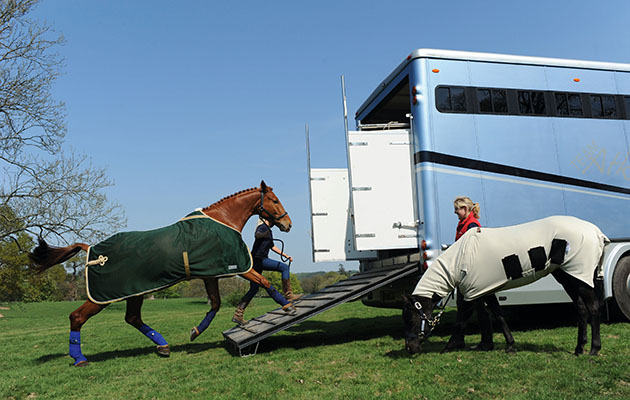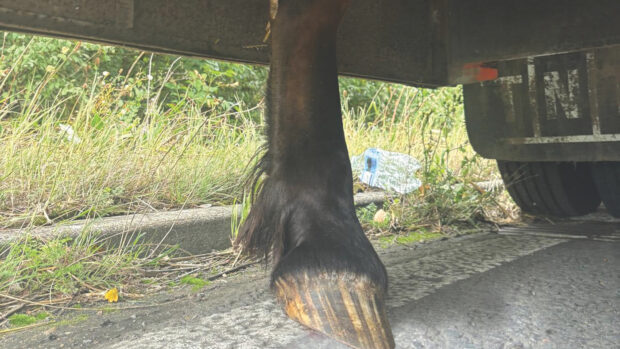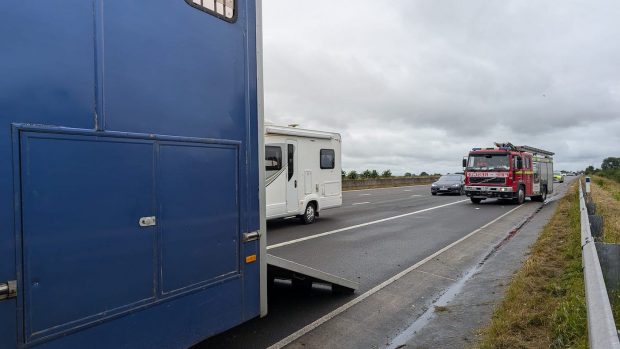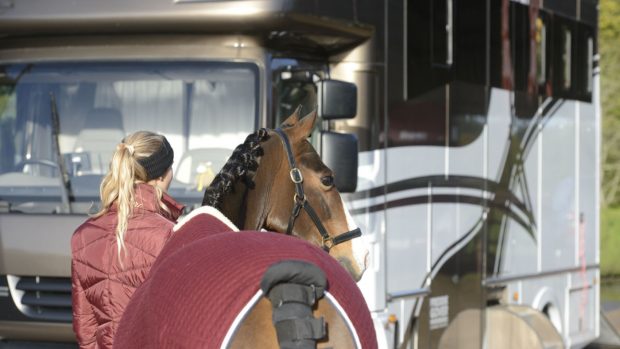Owners have been warned not to risk human and equine safety, or a criminal conviction, by overloading horseboxes – as many are not aware of the importance of payload.
Kevin Parker, of Kevin Parker Horseboxes, has for years been trying to get the message out to horse owners, but he told H&H: “Most customers don’t know anything about it.”
Mr Parker said many horsebox owners will not have come across the issue of payload or vehicle weights before, but that this is one of the top factors in the search for a vehicle, and he “cannot emphasise enough how crucial this point is”.
If a horsebox is registered as a 3.5, or 7.5tonne, for example, and its total weight is over that when on the road, this is breaking the law. Vehicles that are carrying too much weight can be harder to steer and take longer to stop, as well as putting too much stress on tyres that could lead to overheating or blowouts.
Carrying excess weight can also mean up to a £300 fine, or a court summons for the worst offences, and it could mean the vehicle insurance will not cover repairs.
“Unlike buying a car, where weight is never mentioned, payload is an integral aspect of horsebox ownership,” Mr Parker said. “For many customers, staying safe and legal means learning a whole new subject.”
Mr Parker explained that the payload of a vehicle is the amount that can be added to its unladen weight without exceeding the maximum authorised mass. To calculate it, the vehicle should be taken to a weighbridge and weighed with all its integral parts but without horses, people, fuel, water or equipment, and this total subtracted from the weight at which it is registered.
“I’ve known of people who advertise boxes with a weight certificate, but they’ve had it weighed without the partitions or back doors, so it’s got a really good payload,” he said. “But then the customer drives away thinking they’re sorted, and that’s not the case.”
Mr Parker advised taking any potential purchase to a weighbridge to determine payload before buying, then loading it and weighing again, bearing in mind an average horse could weigh 600kg, a person possibly 80kg, and fuel and water 1kg per litre.
Another aspect to consider is loading. Each axle can carry a legal maximum weight, say 3.6 for the front and 5tonne for the rear. A fully loaded 7.5tonne could be legal, but removing one horse from the back could mean too much weight on the front axle.
“I have a very good friend who transports horses – her horsebox was weighed with three horses and was legal,” Mr Parker said. “It had a very large one loaded first, then two smaller ponies. After dropping off the two small ponies, the large horse was left in the front stall and when weighed, this time the front axle was overweight.
“She was lucky enough to get a warning and made to reload the large horse into a middle stall. I often use this as an explanation of horsebox payloads and positioning for customers, and it highlights perfectly how easy it is to fall foul of the law.”
Mark Pickup, CEO of Lion Equestrian Insurance, told H&H that if a lorry is overloaded and involved in an accident, it is likely the insurer will not cover the costs of repair to the vehicle.
“Because it’s breaking the law, and if the accident is caused by that, not only could you be prosecuted, your insurance will probably not cover the repairs,” he said. “It’s unlikely the insurer wouldn’t pay for third-party injury or damage, but they may take a civil prosecution against the policyholder to recover their costs.”
A DVSA spokesperson referred H&H to information on maximum weights and sanctions, adding: “The DVSA’s priority is to protect everyone from unsafe drivers and vehicles.
“Horses are precious cargo, so it’s hugely important that horsebox owners know the weights of their vehicle/trailer as well as the load, to ensure that they are not exceeded. The vehicle or trailer also needs to be properly maintained all year, not just for its annual MOT.”
Drivers must also have the correct licence and operator licence if required, and ensure vehicles are safe to be on the road, with walkaround checks before departure and maintenance.
You might also be interested in:

14 tips for travelling horses safely, plus what kit you really need

The ultimate guide to horsebox insurance

Subscribe to Horse & Hound magazine today – and enjoy unlimited website access all year round
Horse & Hound magazine, out every Thursday, is packed with all the latest news and reports, as well as interviews, specials, nostalgia, vet and training advice. Find how you can enjoy the magazine delivered to your door every week, plus options to upgrade your subscription to access our online service that brings you breaking news and reports as well as other benefits.





